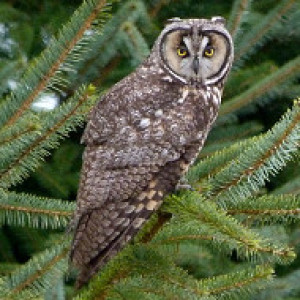Eudyptula minor
Tiritiri Matangi Blip #3
Ahhh BABY PENGUINS!
With the much appreciated assistance of Chris, the Hihi researcher, I was directed to a Blue Penguin nest underneath a pier on the island. These chicks are actually hardly chicks anymore; in fact, they had fledged by the next day. They are the first penguins I've ever found in the wild...something I've dreamt of seeing for a very, very long time.
The Blue Penguin (also called Little, Little Blue, or Fairy Penguin) is the smallest of all the penguins, standing just over 1 foot, or 30 cm. So named for its slate blue plumage, the species is alone in its genus, its lineage having diverged from the other penguin types 25 million years ago. It breeds all over New Zealand's coasts, and along parts of Australia.
Blue Penguins nest in burrows along mainland coasts or on offshore islands. Tiri has its own population of resident penguins, which has increased over the years as the result of human-made nesting boxes being installed along the beach. They only spend time on land during the breeding season, departing at dawn to hunt and then returning just after dark to attend to their chicks. Once the chicks have fledged and are able to go out on their own, the adults return to their burrows to moult. They spend 18 days there, unable to leave as they are not waterproof during the moulting process.
The world population of Blue Penguins is estimated around 300,000-600,000 birds. Their main threats are predation by larger animals, both natural (seals, sharks, whales) and introduced (dogs, foxes, cats, possums). Many colonies, especially at mainland sites, have seen dramatic declines, though continued efforts by creative and caring individuals have helped. One offshore island in Australia has used Maremma sheepdogs--usually protectors of farm chickens--to patrol its Fairy Penguin colony and keep away foxes and feral dogs.
My experiences penguin watching on Tiri have been some of the most fulfilling birding experiences I've ever had. For several nights I made a habit of walking down to the beach at dusk, walking out to the end of the wharf that receives the ferry from Auckland, and watching the sunset while waiting for the penguins to materialize from the outer reaches of the bay. They would gather together in a group of 7-10 some 100 meters offshore and linger there for almost an hour, before collectively making their way to the beach just as it was becoming dark. At that point I'd walk back down the wharf to the beach and watch them come ashore. They are so tiny, they get tossed onto the beach with such force by the smallest of waves. Once out of the tumbling clutches of the waves, they'd wattle up a little further, assess their surroundings, maybe preen a bit, and then dash for cover. I was amazed how fast they were able to move on land--they were not clumsy as most larger penguins seem to be.
The following night after I'd seen these two chicks at their nest in the afternoon, I watched the penguins come ashore for the first time. Two of them went straight for this spot where the chicks had been, while two others sat on the beach preening each other. After some time they decided to move for shelter, so they started scrambling up a low-angle rock wall just beyond the beach (which was lethally adorable in itself) and then they dashed for a roofed interpretive kiosk a few meters away. There they sat preening and looking about, until, after many minutes, they began a sort of bonding ritual that was so cute, I nearly died of fulfilment. They turned to one another and raised themselves up as high as they could go, extending their tiny flippers out behind them like spread wings. Then they began circling each other, in a sort of tiny penguin waltz, whinnying loudly. They nuzzled each other, squealing with contentment, and then they fell over and rolled about together before ducking into the bushes. So. Cute. Wow.
Though I never encountered it myself, the penguins were said to be seen walking the island's trails at night, on their way to their burrows, which are known to be up to 500 meters from the beach.
I couldn't have asked for more from my first encounter with wild penguins. I was able to observe them night after night in the pristine solitude of Tiri, just as they are, in the quiet and the dark. I just can't describe how special it was.
- 3
- 0

Comments
Sign in or get an account to comment.


